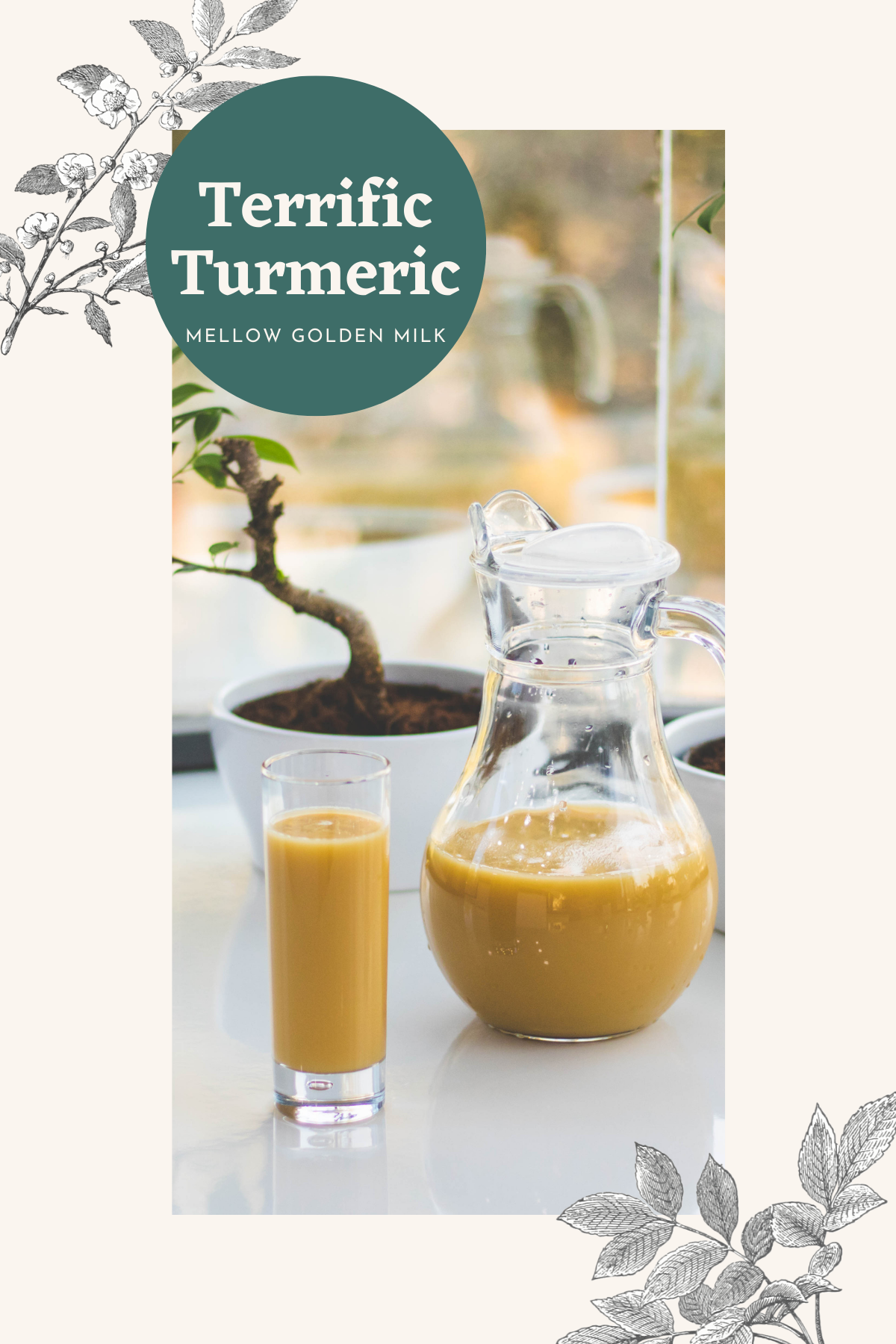Herbal Information for Organic Turmeric in Whole Rhizome Form
Common Name: Turmeric
Botanical Name: Curcuma longa, Rhizoma
Channels/Meridians: Heart, Lung, Liver, Spleen
 Benefits of Turmeric Root
Benefits of Turmeric Root
Turmeric, scientifically known as Curcuma longa, is a vibrant yellow spice commonly used in culinary dishes and traditional medicine. It has gained significant attention due to its potential health benefits. The active compound in turmeric, called curcumin, is believed to be responsible for many of its therapeutic properties. Below are potential benefits associated with turmeric.
Anti-inflammatory properties: Curcumin, the main active component in turmeric, is known for its potent anti-inflammatory effects. It inhibits various molecules involved in the inflammatory response, thereby reducing chronic inflammation. This property may have implications in managing conditions such as arthritis, inflammatory bowel disease, and certain cardiovascular diseases.
Antioxidant activity: Turmeric exhibits strong antioxidant properties, which help neutralize harmful free radicals in the body. Free radicals can cause oxidative stress, leading to cellular damage and increased risk of chronic diseases. By scavenging these free radicals, turmeric may contribute to overall cellular health and potentially lower the risk of conditions like cancer, neurodegenerative disorders, and cardiovascular diseases.
Pain relief: The anti-inflammatory properties of turmeric may also contribute to its analgesic effects. Some studies suggest that turmeric may help alleviate pain, particularly in individuals with conditions like osteoarthritis and rheumatoid arthritis. While more research is needed, turmeric shows potential as a natural alternative for managing pain.
Potential cancer-fighting properties: Curcumin has shown promise in its potential to inhibit the growth and spread of cancer cells. It may interfere with multiple signaling pathways involved in the development and progression of cancer, including cell proliferation, angiogenesis, and metastasis. However, it is important to note that more extensive research, including clinical trials, is necessary to establish the effectiveness of turmeric as a cancer treatment or preventive measure.
Improved digestive health: Turmeric has long been used in traditional medicine to support digestive health. It may stimulate the production of bile, which aids in the digestion and absorption of fats. Turmeric also possesses antimicrobial properties that could help combat certain gastrointestinal infections. Additionally, its anti-inflammatory effects may provide relief for individuals with conditions like irritable bowel syndrome (IBS) and inflammatory bowel disease (IBD).
Potential brain health benefits: Curcumin has attracted attention for its potential neuroprotective properties. It may cross the blood-brain barrier and exhibit antioxidant and anti-inflammatory effects in the brain. Studies suggest that curcumin might help protect against neurodegenerative diseases like Alzheimer's and Parkinson's by inhibiting the accumulation of abnormal protein deposits and reducing inflammation.
It is important to note that curcumin, the active compound in turmeric, has low bioavailability, meaning it is poorly absorbed by the body. To enhance its absorption, it is often recommended to consume turmeric with black pepper, which contains a compound called piperine that can increase curcumin absorption.
Summary of Benefits for Organic Turmeric Rhizome
- Aids in Circulation
- Supports Digestion
- Temporary Pain Relief
- Used Topically to Stop Itch
- Supports Normal Blood Sugar when used with diet and exercise
- Benefits Liver Function
- Anti-Inflammatory Benefits
- Linked to Improved Brain Function
Pin Yin Name: You Ji Jiang Huang
Other Names: Rhizoma curcumae longae, curcumin, Curcuma, Curcuma aromatica
Other Ingredients: None, nothing has been added to this product.
Package Size: 1lb
Form: Whole Rhizome
Dosage: Follow doctors instructions on how to use this herb.
Origin: India
Brand: Nuherbs Organics
Cautions: Do not use if pregnant or nursing.
California Prop 65
Product Properties: Acrid, bitter, cool
Naturally Occurring Components: Curcuminoids, Curcumin

How to make Turmeric Milk
Fresh turmeric root, grated ginger and almond milk create a soothing golden milk that's better for you than a cup of hot chocolate! It's not as spicy as the traditional turmeric milk known as Haldi Ka Doodh but it's still a great way to introduce more turmeric into your diet. Any milk or milk alternative will do here. Agave nectar can be used in place of honey for a vegan drink. B Recipe by: Buckwheat Queen http://allrecipes.co.uk/recipe/39949/turmeric-milk.aspx
Ingredients:
Serves: 1
1 (4cm) piece fresh turmeric root, peeled and grated
1 (4cm) piece fresh ginger, peeled and grated
1 tablespoon honey
250ml almond milk
1 pinch ground turmeric
1 pinch ground cinnamon
Turmeric, a natural way to provide sleep support:
From fighting inflammation to supplying ample antioxidants, turmeric does it all. The common Ayurvedic medicinal spice is also widely used to aid in sleep quality. May aid in protective properties used against oxidative damage and sleep deprivation. Ayurvedic medicine is one of the world's oldest medical systems. Aids digestion and has calming properties, which lead to sounder sleep. Aches and pains? Turmeric milk can be used as an anti-inflammatory.
Did You Know?
Cultural Significance: Turmeric holds cultural significance in various cultures around the world. In India, turmeric has been used for centuries in religious rituals, traditional ceremonies, and as a symbol of purity and prosperity. It is often applied to the skin in the form of turmeric paste as part of pre-wedding and religious ceremonies. In addition to its use in cooking and medicine, turmeric plays a role in traditional rituals and cultural practices, highlighting its multifaceted importance beyond its culinary and medicinal properties.
Reference:
https://www.healthdiaries.com/eatthis/20-health-benefits-of-turmeric.html
https://www.forbes.com/health/supplements/turmeric-health-benefits/
https://www.nccih.nih.gov/health/turmeric
https://www.ncbi.nlm.nih.gov/books/NBK92752/
https://www.health.harvard.edu/staying-healthy/turmeric-benefits-a-look-at-the-evidence
https://www.hopkinsmedicine.org/health/wellness-and-prevention/turmeric-benefits#:~:text=%E2%80%9CTurmeric's%20effect%20on%20mood%20disorders,Degenerative%20eye%20conditions
https://www.wellplated.com/bedtime-golden-milk/https://www.nutrasciencelabs.com/blog/curcumin-as-a-stress-and-sleep-management-supplement























